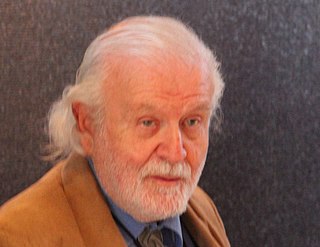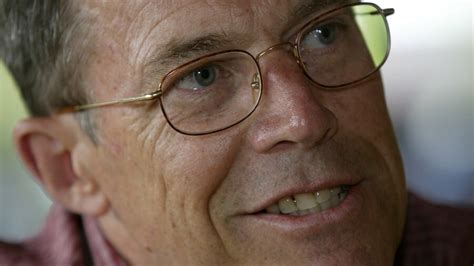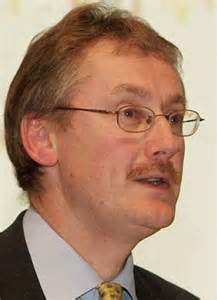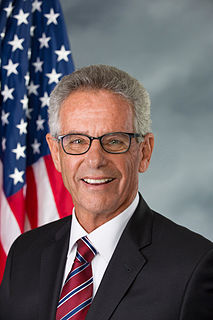A Quote by James Hansen
The evidence for human-made climate change is overwhelming.
Quote Topics
Related Quotes
I am persuaded to think that any climate change is bad because of the investments and adaptations that have been made by human beings and all of the things that support human existence upon this globe. Even minor fluctuations of climate could change the distribution of fish, … upset agriculture,…and inundate costal cities…… Such changes could occur at a faster rate perhaps than human society can evolve.
I know that there are those who disagree with the overwhelming scientific evidence on climate change. But here's the thing -- even if you doubt the evidence, providing incentives for energy-efficien cy and clean energy are the right thing to do for our future -- because the nation that leads the clean energy economy will be the nation that leads the global economy. And America must be that nation.
How is it that, in the face of overwhelming scientific evidence, there are still some who would deny the dangers of climate change? Not surprisingly, the loudest voices are not scientific, and it is remarkable how many economists, lawyers, journalists and politicians set themselves up as experts on the science.
Despite the international scientific community's consensus on climate change, a small number of critics continue to deny that climate change exists or that humans are causing it. Widely known as climate change "skeptics" or "deniers," these individuals are generally not climate scientists and do not debate the science with the climate scientists.
Now it is the least developed world who are not responsible for this climate change phenomenon that bore the brunt of climate change consequences so it is morally and politically correct that the developed world who made this climate change be responsible by providing financial support and technological support to these people.
It's very hard to track down what's real and what's not real. We haven't absorbed what climate change is doing. Because whether people associate it or not, fear of immigration is completely related to climate change, because the mass migrations that are happening, the war in Syria, all of these structural human migrations are related to climate change.




































